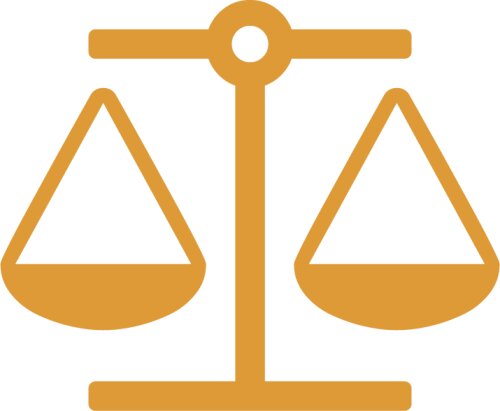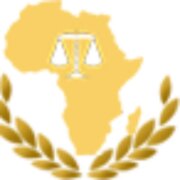Best Structured Finance Lawyers in Kinshasa
Share your needs with us, get contacted by law firms.
Free. Takes 2 min.
List of the best lawyers in Kinshasa, DR Congo
About Structured Finance Law in Kinshasa, DR Congo
Structured Finance refers to complex financial transactions that are designed to meet specific financing needs which traditional financial instruments cannot satisfy. In Kinshasa, DR Congo, Structured Finance often involves the use of securitization, syndicated loans, project finance, and asset-backed securities. These financial mechanisms facilitate large scale investments and development projects by pooling financial assets or using future receivables as collateral, allowing for the efficient allocation of capital in a market where access to traditional forms of credit can be limited.
The legal landscape for Structured Finance in Kinshasa operates within the framework set by Congolese corporate, banking, and commercial laws, alongside regulations issued by the Central Bank of Congo. International best practices also influence documentation, risk management, and compliance obligations, especially for transactions involving foreign investors. As the local market continues to grow in sophistication, a solid understanding of both local regulations and international standards is critical for anyone engaging in Structured Finance activities in Kinshasa.
Why You May Need a Lawyer
Structured Finance transactions are complex and carry unique legal considerations. People and organizations in Kinshasa may require legal assistance in the following situations:
- Preparing or reviewing financing agreements for large projects
- Understanding the legal obligations arising from asset-backed securities or syndicated loans
- Navigating regulatory compliance, including Central Bank of Congo requirements
- Structuring and documenting cross-border transactions
- Resolving disputes between parties to a finance transaction
- Advising on risk mitigation, credit enhancement, and security arrangements
- Adhering to anti-money laundering and anti-corruption laws applicable to financial deals
- Assisting with registration and perfection of security interests on assets
- Negotiating with lenders, investors, or government authorities
- Obtaining necessary regulatory approvals for certain Structured Finance products
Local Laws Overview
Kinshasa operates under the legal system of the Democratic Republic of Congo, which is primarily based on civil law influenced by Belgian law. For Structured Finance, the following laws and regulatory aspects are most relevant:
- OHADA Uniform Act on General Commercial Law - The DR Congo is a member of the OHADA zone, meaning the OHADA (Organization for the Harmonization of Business Law in Africa) rules apply, particularly for commercial and corporate matters.
- Banking Regulations - The Central Bank of Congo supervises all banking transactions, including Structured Finance, and sets out compliance, capital requirements, and licensing.
- Security Interests - The law requires proper registration of security interests in assets used as collateral in transactions.
- Foreign Exchange Controls - Certain transactions, particularly those involving foreign currency or offshore lenders, may be subject to exchange control regulations.
- Anti-money Laundering Laws - The DR Congo has specific requirements for due diligence and reporting in financial transactions to prevent illicit finance.
- Investment Codes - There are investment incentives and regulatory guidelines that may affect project finance and other structured deals, particularly in priority development sectors.
Foreign investors and local entities must ensure that all Structured Finance agreements are compliant with these statutes to avoid regulatory and legal hurdles.
Frequently Asked Questions
What is Structured Finance?
Structured Finance refers to complex, often tailor-made financial arrangements that pool and transfer risk, such as securitizations, project finance, or asset-backed securities, usually used for large or non-standard financing needs.
Is Structured Finance legal in Kinshasa, DR Congo?
Yes, Structured Finance is legal in Kinshasa provided that the transactions comply with local laws, banking regulations, the OHADA Uniform Act, and Central Bank guidelines.
Can foreign entities participate in Structured Finance deals in Kinshasa?
Yes, foreign investors and entities can enter into Structured Finance transactions in Kinshasa, but must adhere to investment codes and any foreign exchange controls in place.
What kind of security can be used in Structured Finance transactions?
Tangible and intangible assets such as real estate, equipment, receivables, and future cash flows can be used as security, provided the security interests are legally registered under Congolese law.
Are there regulatory approvals required for Structured Finance products?
Some Structured Finance products, especially those involving public markets, banks, or foreign currencies, may require approval from the Central Bank or other regulatory bodies.
What are the risks involved in Structured Finance transactions?
Risks include legal enforceability issues, regulatory changes, credit risk, counterparty risk, and foreign exchange risks, especially for cross-border deals.
How does the local law protect lenders or investors?
Local law enables the registration of security interests and provides legal mechanisms for enforcing claims against collateral in case of default, but requires strict compliance with procedures.
What documentation is needed for Structured Finance transactions?
Comprehensive finance agreements, security documents, inter-creditor agreements, and compliance certificates are typically required, often prepared bilingually for international deals.
Can disputes about Structured Finance be settled through arbitration?
Yes, parties may agree to settle disputes through arbitration, often stipulated in the transaction documents, and Kinshasa recognizes arbitral awards in accordance with OHADA and local laws.
Do Structured Finance transactions require legal advice?
Absolutely. Due to their complexity and the evolving nature of finance law in DR Congo, obtaining specialized legal advice is highly recommended for both borrowers and lenders.
Additional Resources
If you need legal or practical guidance regarding Structured Finance in Kinshasa, the following resources may be helpful:
- Central Bank of Congo (Banque Centrale du Congo) - For regulatory guidelines, licensing, and compliance matters
- Ministry of Finance, DR Congo - For taxation and investment policies
- OHADA Official Portal - For harmonized business law documentation and updates
- Congolese Bar Association (Ordre des Avocats) - For finding reputable legal practitioners in the finance sector
- Kinshasa Chamber of Commerce - For business and investor support resources
- International Finance Corporation (IFC) and African Development Bank regional offices - For insights on project finance and investment standards
Next Steps
If you are considering entering into a Structured Finance transaction in Kinshasa, DR Congo, or you are facing a related legal issue, follow these steps:
- Assess your financial and legal objectives to determine your specific needs
- Gather all relevant documentation, such as corporate records, financial statements, and existing agreements
- Consult a Congolese lawyer with experience in Structured Finance to analyze your case or transaction
- Ensure that your transaction structure complies with both Congolese law and any applicable OHADA standards
- Engage with relevant regulatory bodies early in the process for clarity on compliance requirements
- If negotiations or disputes arise, consider formal mediation or arbitration if direct negotiations are unsuccessful
- Document all steps of the process thoroughly for legal and financial audit purposes
Seeking professional legal advice is the most effective way to protect your interests and ensure the success of any Structured Finance initiative in Kinshasa.
Lawzana helps you find the best lawyers and law firms in Kinshasa through a curated and pre-screened list of qualified legal professionals. Our platform offers rankings and detailed profiles of attorneys and law firms, allowing you to compare based on practice areas, including Structured Finance, experience, and client feedback.
Each profile includes a description of the firm's areas of practice, client reviews, team members and partners, year of establishment, spoken languages, office locations, contact information, social media presence, and any published articles or resources. Most firms on our platform speak English and are experienced in both local and international legal matters.
Get a quote from top-rated law firms in Kinshasa, DR Congo — quickly, securely, and without unnecessary hassle.
Disclaimer:
The information provided on this page is for general informational purposes only and does not constitute legal advice. While we strive to ensure the accuracy and relevance of the content, legal information may change over time, and interpretations of the law can vary. You should always consult with a qualified legal professional for advice specific to your situation.
We disclaim all liability for actions taken or not taken based on the content of this page. If you believe any information is incorrect or outdated, please contact us, and we will review and update it where appropriate.















